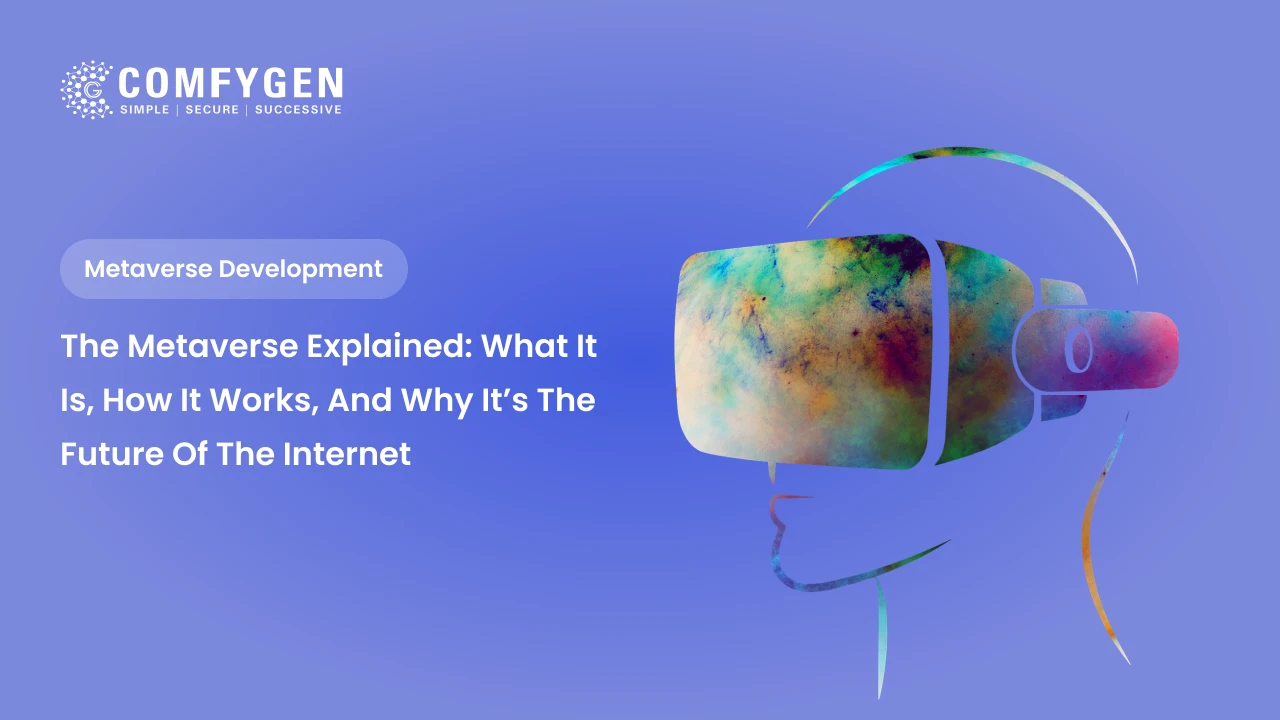How to Build a Blockchain-Based Identity Verification System in 2025
In 2025, digital identity verification is more crucial than ever. As the world moves towards a decentralized economy, traditional identity verification methods are becoming increasingly vulnerable to fraud and data breaches. Blockchain technology offers a revolutionary solution to these challenges by providing a secure, transparent, and tamper-proof system for managing digital identities. This blog will guide you through the process of building a blockchain-based identity verification system and explain how it enhances security and efficiency in digital identity management.
Understanding Blockchain and Identity Verification
Blockchain technology is a decentralized, distributed ledger that allows for secure and transparent transactions. It’s best known for its role in powering cryptocurrencies like Bitcoin, but its potential extends far beyond the financial industry. One of the most promising applications of blockchain is in identity verification systems.
In a traditional identity system, personal data is stored in centralized databases, often controlled by governments, banks, or other entities. However, these centralized systems are prone to data breaches, fraud, and misuse. With blockchain, identities are stored in a distributed manner, making it nearly impossible for hackers to manipulate or steal data. By leveraging blockchain-based identity solutions, businesses can significantly enhance the security and reliability of their identity management processes.
Ready to revolutionize
identity verification with blockchain?
Contact Now
How Blockchain Technology Enhances Identity Verification
Blockchain provides a unique advantage for identity verification because of its core features:
- Decentralization: Unlike centralized systems, blockchain distributes identity information across a network of computers. This reduces the risk of single points of failure and increases resilience against fraud.
- Immutability: Once data is added to a blockchain, it cannot be altered or deleted. This ensures the integrity of the identity data, providing a secure and reliable record.
- Transparency: Blockchain ensures full transparency in transactions, allowing users to verify the authenticity of their identity without compromising privacy.
These features make blockchain technology an ideal choice for creating secure identity verification systems.
The Role of Self-Sovereign Identity (SSI) in Blockchain
One of the most innovative applications of blockchain-based identity solutions is Self-Sovereign Identity (SSI). SSI allows individuals to own and control their personal identity data, eliminating the need for intermediaries like banks or government agencies. With SSI, users can manage their identities on the blockchain, providing secure, privacy-preserving verification processes.
By using self-sovereign identity on the blockchain, individuals have the ability to selectively share their personal data with trusted parties. For example, users can prove their age, citizenship, or employment status without revealing unnecessary details like their full birthdate or address. This helps protect user privacy while ensuring that identity verification remains accurate and reliable.
Building a Blockchain-Based Identity Verification System: Key Steps
1. Choosing the Right Blockchain Platform
The first step in building a blockchain-based identity verification system is selecting the right blockchain platform. Several platforms are available, each with its unique advantages:
- Ethereum: Known for its smart contract capabilities, Ethereum is ideal for applications that require decentralized governance and automation.
- Binance Smart Chain: A fast and low-cost blockchain, perfect for high-volume transactions.
- Solana: Offers scalability and speed, making it an excellent choice for applications that require real-time identity verification.
When choosing a platform, consider factors such as scalability, cost, transaction speed, and network security. Your choice will significantly impact the overall performance of your identity system.
2. Designing the Architecture
Once you’ve selected a platform, the next step is to design the architecture of your identity verification system. This involves integrating key components such as:
- Blockchain infrastructure: The underlying technology that supports the system.
- Smart contracts: These are self-executing contracts that automatically verify and authenticate user identities based on predefined conditions.
- Identity databases: Even though blockchain provides decentralized storage, some identity information may still be stored off-chain. It’s crucial to ensure this data is secure and private.
3. Implementing Smart Contracts for Authentication
Smart contracts are an essential component of blockchain-based identity verification. These self-executing contracts allow for automated verification processes, ensuring that only authorized users can access the system. For example, when a user attempts to verify their identity, a smart contract will automatically check their credentials against the blockchain.
Smart contracts can be used to verify information such as:
- User credentials
- Authentication tokens
- KYC (Know Your Customer) data
By integrating smart contracts into your system, you can automate much of the identity verification process, reducing the need for manual intervention and minimizing the risk of human error.
Blockchain Security in Identity Verification
Security is a top priority when building a blockchain-based identity verification system. Blockchain technology provides inherent security features, but additional measures can be taken to further protect user data:
- Multi-signature wallets: Requiring multiple signatures for sensitive transactions adds a layer of security.
- Encryption: Data stored on the blockchain can be encrypted, ensuring that only authorized parties can access it.
- Third-party audits: Engage third-party security auditors to review your smart contracts and blockchain infrastructure for potential vulnerabilities.
These measures help ensure that your blockchain-based identity verification system is both secure and compliant with regulatory standards.
Compliance with Regulations in Blockchain Identity Verification
As with any identity verification system, blockchain solutions must comply with relevant laws and regulations. Privacy laws like the General Data Protection Regulation (GDPR) in the European Union and data protection laws in other jurisdictions set standards for handling personal information.
Blockchain systems must be designed to comply with these regulations while providing transparency and control to users. For example, users must have the ability to request access to their data, update incorrect information, or delete their identity data if necessary.
Challenges in Blockchain-Based Identity Verification
While blockchain offers significant advantages for identity verification, there are some challenges to consider:
- Scalability: As blockchain networks grow, the need for scalable solutions becomes increasingly important. Ensure that your platform can handle large volumes of identity verification requests.
- User adoption: Convincing individuals and businesses to adopt blockchain-based identity systems may take time. Education and incentives will play a crucial role in driving adoption.
- Interoperability: Your blockchain identity system must be able to integrate with existing identity management systems and external applications, which can be technically challenging.
Future of Blockchain-Based Identity Verification
The future of blockchain-based identity verification looks promising. As more organizations move towards decentralized exchange solutions, the need for secure, transparent identity systems will continue to grow. Blockchain has the potential to redefine how we manage and verify digital identities, providing users with more control over their data and enhancing security across industries.
Talk to our blockchain experts
now and future-proof your solution.
Contact Now
Conclusion
Building a blockchain-based identity verification system in 2025 is not only a smart move but a necessary one to address growing concerns about privacy, security, and data integrity. By leveraging blockchain technology, you can create a robust, scalable, and secure identity verification system that empowers users while ensuring compliance with regulations. With the right blockchain platform, smart contracts, and security measures in place, you can build an identity system that meets the needs of tomorrow’s digital world.
Frequently Asked Questions (FAQs)
What is a blockchain-based identity verification system?
A blockchain-based identity verification system uses decentralized blockchain technology to securely verify and manage users’ digital identities. It eliminates the risks of centralized data storage and ensures tamper-proof, privacy-respecting identity management.
Why is blockchain ideal for identity verification in 2025?
Blockchain offers decentralization, immutability, and transparency, which make it highly secure for storing and verifying personal data. These features reduce identity fraud, enhance privacy, and enable self-sovereign identity management.
What are the benefits of using self-sovereign identity (SSI)?
Self-sovereign identity gives users full control over their personal data. It allows them to verify their identity without exposing unnecessary information, thus improving both privacy and security.
Which blockchain platforms are best for building identity verification systems?
Popular blockchain platforms include Ethereum for smart contracts, Solana for high-speed performance, and Binance Smart Chain for low-cost transactions. The best choice depends on your project’s scalability and cost requirements.
How do smart contracts help in identity verification?
Smart contracts automate the verification process by checking user credentials against predefined conditions. They reduce human error, eliminate manual processes, and ensure secure and instant authentication.
Is blockchain-based identity verification compliant with global privacy laws?
Yes, blockchain identity systems can be designed to comply with regulations like GDPR by giving users control over their data and incorporating off-chain components to allow for data updates and deletion where needed.

Mr. Saddam Husen, (CTO)
Mr. Saddam Husen, CTO at Comfygen, is a renowned Blockchain expert and IT consultant with extensive experience in blockchain development, crypto wallets, DeFi, ICOs, and smart contracts. Passionate about digital transformation, he helps businesses harness blockchain technology’s potential, driving innovation and enhancing IT infrastructure for global success.
Based on Interest

Blockchain Consulting Services: Transforming Your Business with Cutting-Edge Blockchain Solutions
Introduction Blockchain technology is revolutionizing industries by providing secure, decentralized, and transparent solutions. As businesses across the world explore their potential,…








